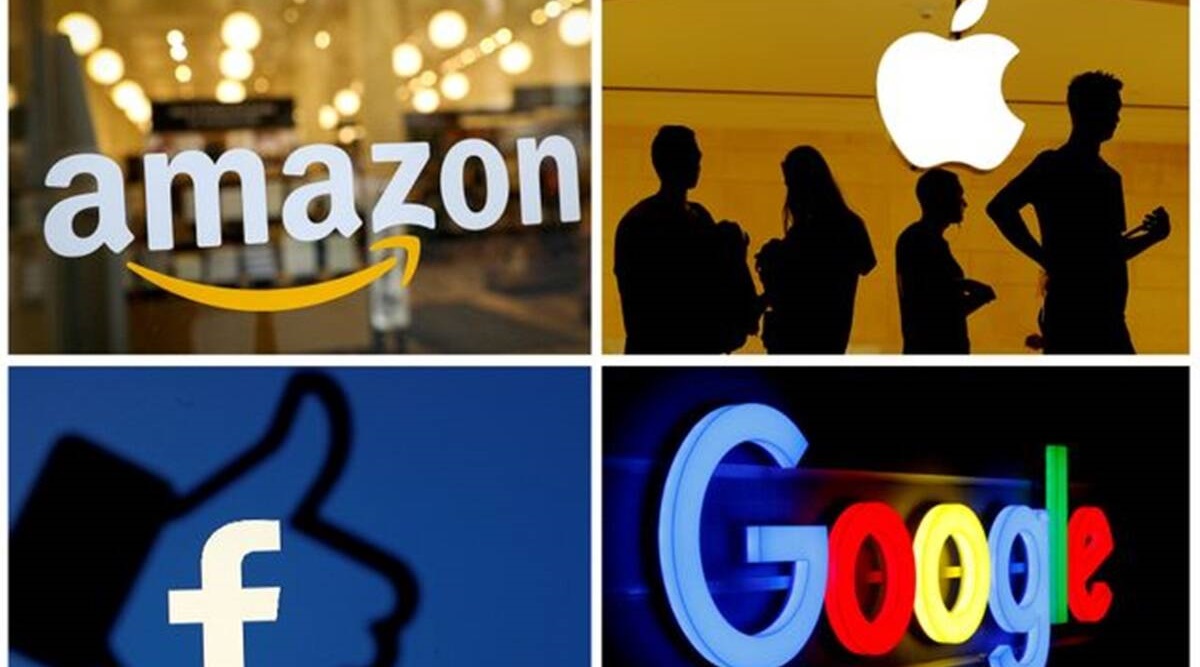 However, tech companies have so far opposed sharing non-personal data with the Government, citing violation of trade secrets and intellectual property rights. (Reuters/File)
However, tech companies have so far opposed sharing non-personal data with the Government, citing violation of trade secrets and intellectual property rights. (Reuters/File)THE GOVERNMENT could look at clearly defining “ownership” of non-personal data held by big-tech platforms, such as Google, Meta and Amazon, if they refuse to share such data with a regulator as proposed in the draft National Data Governance Framework, The Indian Express has learnt.
The draft framework, announced by the Ministry of Electronics and Information Technology (MEITY) in May, looks at acquiring non-personal data from the Government and persuading private companies to share this data for the benefit of start-ups in the country.
The draft also proposes the setting up of an India Data Management Office (IDMO), which will be in charge of designing and managing the platform that will process requests and provide access to non-personal datasets for Indian researchers and start-ups, and act as the sector’s regulator.
Asked how the Government will ensure that private companies share non-personal data, given that the provision is non-binding, a senior official said: “Once we have a functional IDMO, the Government will share all the non-personal data in its possession with it. As a second step, we will request private companies to also share certain datasets with the IDMO. In case they refuse, then the Government might get into the ownership of such data and how private companies can claim exclusive ownership over it.”
Subscriber Only Stories
In its most basic form, non-personal data is any data set that does not contain personally identifiable information. It could include aggregated information, such as the overall health data of a particular demography, weather and climate data of an area, and traffic data, among others.
The idea of harnessing economic benefits from aggregated non-personal datasets was first proposed by a MEITY-appointed committee headed by Infosys co-founder Kris Gopalakrishnan.
In a draft report of January 2021, the committee recommended the identification of certain “high value datasets”, which could be shared for the purpose of encouraging innovation and ensuring national security.
A member of the committee, who did not wish to be identified, said that “communities” should ideally be allowed to claim certain rights over the data they produce on platforms like Google, Amazon, Uber, etc., collectively.
However, tech companies have so far opposed sharing non-personal data with the Government, citing violation of trade secrets and intellectual property rights.
“While offering their services to users, companies collect data on them and the subsequent non-personal data that is used to train their algorithms is value addition that the company has done on its part. Ideally, companies should have ownership over non-personal data since their underlying technologies derive value out of the raw data that they collect, which helps in finally making sense of those datasets,” said a senior executive from a top tech firm.
The government official said that while companies have reaped “significant economic benefits” from non-personal data, it has not trickled down to users who fundamentally help generate this data.
“Non-personal data that has been derived after processing personal data and collected by the companies to train their own algorithms is eventually monetised by them. Tech companies have earned billions of dollars by virtue of that,” the official said.
“However, the state and citizens do not get any value out of it even though the underlying information in non-personal datasets held by companies is generated by individuals. The jury is out on who actually benefits from such data. Our view is that right now, it is just the big tech companies who are benefitting out of it,” he said.
The IT Ministry did not respond to a request for comment from The Indian Express. Google did not respond to emailed queries while Amazon and Meta (Facebook) declined comment.
- The Indian Express website has been rated GREEN for its credibility and trustworthiness by Newsguard, a global service that rates news sources for their journalistic standards.

